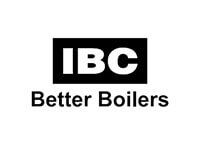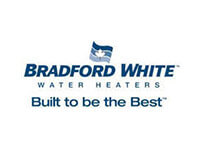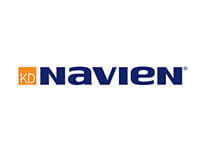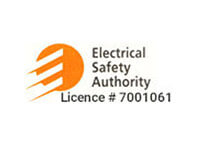In the sweltering heat of summer, the importance of a reliable air conditioner cannot be overstated. As homeowners, we all share the common goal of creating a comfortable, cool haven within our abodes. However, selecting the right air conditioner can be a daunting task, especially with the myriad of options available in the market today. That’s where our expertise at Bosanac Heating & Electric comes into play. We’ve been serving the HVAC needs of homeowners in Hamilton, ON, and surrounding areas for years, and we understand the nuances of choosing the perfect cooling solution. In this guide, we’ll share seven invaluable tips to help you make an informed decision when buying a new air conditioner. So, let’s dive right in and ensure your comfort is never compromised.
Choosing the Right Type of Air Conditioner
Assess Your Cooling Needs
The first step in choosing the right air conditioner is to assess your cooling requirements. Consider factors such as:
- Room Size: The square footage of the area you need to cool plays a significant role in determining the capacity of the unit you’ll need.
- Climate: The local climate in Hamilton, ON, can impact your choice. Hot and humid summers may require a different system than milder climates.
- Budget: Determine how much you’re willing to invest in your air conditioning system. Different types of units come with varying price tags.
Understand the Types of Air Conditioners
Familiarize yourself with the various types of air conditioning systems available:
- Central Air Conditioning: Ideal for whole-home cooling, central AC systems use a network of ducts to distribute cool air evenly throughout your home.
- Ductless Mini-Split Systems: These systems are perfect for homes without ductwork. They offer zoned cooling and can be more energy-efficient.
- Window Units: It is generally easy to install but may require some modifications to your window.
- Portable Air Conditioners: These units are easy to move and suitable for cooling specific areas as needed. They simply need an electrical outlet and a window for venting.
Consider Energy Efficiency
Energy efficiency is a crucial factor in both cost savings and environmental impact. Look for units with high Seasonal Energy Efficiency Ratio (SEER) ratings for central ACs and Energy Efficiency Ratio (EER) ratings for room air conditioners. Higher ratings indicate better energy efficiency.
Evaluate Long-Term Costs
Consider the unit’s maintenance requirements, expected lifespan, and potential energy savings. Sometimes, investing a bit more upfront in a highly efficient unit can result in significant long-term savings.
Seek Professional Guidance
Consulting with HVAC professionals at Bosanac Heating & Electric can provide valuable insights. They can assess your home’s specific needs and recommend the most suitable type and size of air conditioner.
Environmental Impact
Consider the environmental impact of your choice. Some systems use more eco-friendly refrigerants, which can be a responsible choice for the environment.
Exploring the Latest Air Conditioning Technology
Staying up-to-date with the latest technological advancements is vital when buying a new air conditioner. With innovations like variable-speed compressors, smart thermostats, and eco-friendly refrigerants, you can optimize both your comfort and energy consumption.
The world of air conditioning technology is continually evolving, offering homeowners in Hamilton, ON, and beyond more advanced and efficient cooling solutions than ever before. Staying informed about the latest innovations is essential for making an informed choice when upgrading your cooling system. In this guide, we’ll explore the cutting-edge technologies shaping the air conditioning industry, ensuring that you’re well-equipped to enhance your home’s comfort and energy efficiency.
- Variable-Speed Compressors
One of the most significant advancements in air conditioning technology is the adoption of variable-speed compressors. Unlike traditional single-speed compressors that operate at full capacity and then turn off, variable-speed compressors adjust their output to match the cooling needs precisely. This results in improved energy efficiency, quieter operation, and more consistent indoor comfort.
- Smart Thermostats and Home Automation
The integration of smart thermostats and home automation systems has revolutionized how we control and monitor our air conditioning systems. Smart thermostats, like those from Nest and Ecobee, allow homeowners to remotely adjust temperature settings, create schedules, and even receive energy usage reports via smartphone apps. Additionally, compatibility with voice assistants like Amazon Alexa and Google Assistant adds another layer of convenience.
- Eco-Friendly Refrigerants
Environmental consciousness is driving the transition from older refrigerants to more eco-friendly options. Many newer air conditioning systems now use refrigerants with lower Global Warming Potential (GWP) and ozone depletion potential. These refrigerants are less harmful to the environment, helping reduce your carbon footprint.
- Zoned Cooling Systems
Zoned cooling systems provide homeowners with precise control over the temperature in different areas of their homes. These systems use dampers and individual thermostats to direct cool air only to the zones that need it. This not only enhances comfort but also reduces energy wastage by avoiding unnecessary cooling in unoccupied areas.
- Heat Pump Technology
Heat pumps have gained popularity as versatile cooling and heating solutions. They use advanced technology to transfer heat between the indoor and outdoor units, providing both cooling in the summer and heating in the winter. Heat pumps are highly energy-efficient and can help homeowners save on heating costs during colder months.
- Enhanced Air Filtration
New air conditioning systems often incorporate advanced filtration options like High-Efficiency Particulate Air (HEPA) filters and ultraviolet (UV) air purifiers. These technologies help remove allergens, bacteria, and other pollutants from the air, promoting healthier living environments.
- Energy Monitoring and Management
Some modern air conditioners come equipped with energy monitoring and management features. These systems track energy consumption patterns and offer recommendations for optimizing energy usage. They may also provide insights into potential efficiency improvements and cost-saving opportunities.
Sizing Your Air Conditioner Properly
Before you get caught up in the allure of advanced features, remember that sizing your air conditioner properly is fundamental. An oversized unit can cycle on and off too frequently, while an undersized one may struggle to cool your home effectively.
- Measure Your Home’s Square Footage
The first and fundamental step in sizing your air conditioner is to measure the square footage of the space you intend to cool. Measure each room individually and calculate the total square footage. This figure will serve as a starting point for determining the required cooling capacity.
- Consider Climate Factors
Hamilton, ON, experiences varying outdoor temperatures throughout the year. Consider the local climate when sizing your air conditioner. Factors like humidity levels and the frequency of extreme heat should influence your decision. A professional HVAC technician can help you make these considerations.
- Calculate Cooling Load
The cooling load of your home accounts for factors such as insulation, windows, doors, and local climate. A Manual J calculation, performed by an HVAC professional, takes all these variables into account to determine the exact cooling capacity needed to maintain your desired indoor temperature.
- Account for Other Factors
Other factors that impact cooling capacity include:
- Ceiling Height: Taller ceilings may require a higher cooling capacity.
- Sun Exposure: South-facing rooms or areas with significant sun exposure may need extra cooling power.
- Number of Occupants: A room with more occupants may require additional cooling.
- Avoid Oversizing
One common mistake is oversizing the air conditioner. An oversized unit will cool your home quickly but may not dehumidify the air adequately. This can lead to a clammy and uncomfortable indoor environment, and it can also increase energy consumption.
- Consult a Professional
Sizing an air conditioner is a complex task that involves numerous variables. To ensure accuracy and efficiency, it’s highly recommended to consult with an HVAC professional, like Bosanac Heating & Electric. They have the expertise and tools to perform the necessary calculations and recommend the ideal cooling capacity for your specific home.
- Explore Zoning Options
If your home has varying cooling needs in different areas, consider zoning your air conditioning system. Zoned systems allow you to cool specific zones independently, ensuring that each area receives the appropriate amount of cooling.
What to Look for in Warranty and Service Agreements
When investing in a new air conditioner, it’s crucial to pay close attention to the warranty and service agreements that come with it. These agreements provide you with peace of mind, ensuring that your cooling system remains reliable and cost-effective for years to come. In this guide, we’ll explore what you should look for in warranty and service agreements to protect your investment and maintain optimal comfort in your Hamilton, ON home.
- Manufacturer’s Warranty
The manufacturer’s warranty is typically included with your air conditioner and covers the essential components of the system, such as the compressor and other major parts. When assessing this warranty, consider:
- Coverage Duration: Determine how long the manufacturer’s warranty lasts. Standard coverage often ranges from 5 to 10 years.
- Component Coverage: Review which components are covered. Ensure that critical parts are included, as these can be costly to repair or replace.
- Conditions and Limitations: Pay attention to any conditions or limitations, such as required maintenance, to keep the warranty valid.
- Extended Warranty Options
Many manufacturers offer extended warranty options that provide additional coverage beyond the standard warranty period. Extended warranties can be valuable for long-term protection and peace of mind.
- Service Agreements
Service agreements, also known as maintenance agreements or service contracts, are separate agreements that cover routine maintenance and service for your air conditioner. Consider the following aspects:
- Scheduled Maintenance: Determine the frequency of scheduled maintenance visits, typically performed annually or semi-annually.
- Services Included: Review the specific services covered under the agreement, such as cleaning, inspections, and minor repairs.
- Priority Service: Inquire about priority service or faster response times for service agreement customers.
- Cost Savings: Calculate the potential cost savings of bundling maintenance services in a service agreement compared to paying for individual visits.
- Transferability
Find out if the warranty and service agreements are transferable to a new homeowner if you decide to sell your home. Transferable warranties can add value to your property.
- Professional Installation Requirement
Some warranties stipulate that the air conditioner must be installed by a licensed HVAC professional to remain valid. Ensure that your installation meets these requirements to avoid voiding the warranty.
- Read the Fine Print
Carefully read and understand the terms and conditions of both the manufacturer’s warranty and any service agreements. Pay attention to any exclusions, limitations, and requirements.
- Register Your Warranty
Ensure that you register your warranty promptly after the installation of your air conditioner. Failure to register within the specified timeframe may void the warranty.
- Manufacturer Reputation
Consider the reputation and reliability of the air conditioner manufacturer. A reputable manufacturer is more likely to honor warranty claims promptly and provide quality service.
- Local Service Availability
Check if there are authorized service providers in your area who can perform warranty repairs and maintenance covered by your agreements. This ensures that you have access to timely service when needed.
Exploring Smart and Wi-Fi-Enabled Options
The future is here, and it’s smart! Explore the world of smart and Wi-Fi-enabled air conditioners for enhanced convenience and control:
In an increasingly interconnected world, your air conditioner can be at your command with a smartphone app or voice assistant. Smart features like remote temperature control and energy usage tracking offer unparalleled convenience and efficiency.
The journey to finding the perfect air conditioner Hamilton, ON home can be a breeze when armed with knowledge and guidance. At Bosanac Heating & Electric, we’re dedicated to helping homeowners like you make informed choices to ensure comfort, efficiency, and peace of mind. Keep these seven tips in mind as you embark on your quest for the ideal cooling solution. Your comfort is our priority, and we’re here to make it a reality.
















